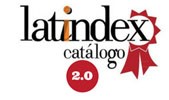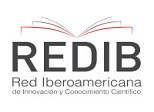Inteligencia Artificial en la Gestión del Talento Humano: Estrategias para la Adaptación Organizacional
Palabras clave:
inteligencia artificial, gestión del talento humano, automatización, cultura organizacional, capacitaciónResumen
La incorporación de la inteligencia artificial (IA) en la gestión del talento humano (GTH) ha generado un cambio significativo en las prácticas empresariales, especialmente en la automatización de procesos clave. El objetivo de esta investigación es explorar cómo la IA impacta en la GTH y analizar los desafíos que enfrentan las empresas para implementar estas tecnologías. El estudio fue realizado con un enfoque cuantitativo, utilizando un diseño descriptivo con una muestra de 15 empresas en la provincia de Bolívar. Se aplicó un cuestionario estructurado a los participantes para evaluar el uso de IA en áreas como reclutamiento, capacitación y desarrollo. Los resultados indicaron que un 40 % de las empresas ya están utilizando IA en sus procesos, mientras que el otro 60 % aún enfrenta barreras como la falta de conocimientos técnicos y la resistencia al cambio. En conclusión, la IA presenta oportunidades significativas para mejorar la eficiencia en la gestión del talento, pero es crucial que las empresas inviertan en formación, educación y cambien su cultura organizacional para adaptarse a estas nuevas herramientas.
Citas
Ajunwa, I. (2019). The paradox of automation as anti-bias intervention. Cardozo Law Review, (41), 1671. https://scholar.google.com.ec/scholar?q=Ajunwa,+I.+(2019).+The+paradox+of+automation+as+anti-bias+intervention&hl=es&as_sdt=0&as_vis=1&oi=scholart.
Buendia Giribaldi, A. R., & Chilet Cama, S. E. (2024). Gestión del Cambio: Estrategias y Desafíos en la Implementación de Políticas Innovadoras. Revista Venezolana De Gerencia, 29(107), 1228-1240. https://doi.org/10.52080/rvgluz.29.107.15
Chamorro-Premuzic, T., Akhtar, R., Winsborough, D., & Tinus, T. (2017). Artificial intelligence in human resources: Enhancing the human touch. Harvard Business Review.https://doi.org/10.1016/j.cobeha.2017.04.007
Davenport, T. H., & Ronanki, R. (2018). Artificial intelligence for the real world. Harvard Business Review, 96(1), 108-116.https://www.bizjournals.com/boston/news/2018/01/09/hbr-artificial-intelligence-for-the-real-world.html
Deloitte Insights. (2023). Tendencias en capital humano en Ecuador 2023. Deloitte Insights. https://www2.deloitte.com/uy/es/pages/human-capital/articles/tendencias-globales-en-hc.html
García-Martínez, I., Fernández-Batanero, J., Fernández-Cerero, J., & León, S. (2023). Analyzing the Impact of Artificial Intelligence and Computational Sciences on Student Performance: Systematic Review and Meta-analysis. Journal of New Approaches in Educational Research, 12(1), 171-197. https://doi.org/10.7821/naer.2023.1.1240
Gómez, L., & Vargas, M. (2022). Implementación de IA en procesos de selección docente: Caso Universidad Estatal de Bolívar. Revista Ecuatoriana de Educación Superior, 8(2), 45-62.
Jarrahi, M. H. (2018a). Artificial intelligence and the future of work: Understanding the implications of AI for labor and employment. Work and Employment Studies, 32(3), 365-380.DOI: 10.1016/j.bushor.2018.03.007
Jarrahi, M. H. (2018b). Artificial intelligence and the future of work: Human-AI symbiosis in organizational decision making. Business Horizons, 61(4), 577-586. https://doi.org/10.1016/j.bushor.2018.03.007
Kaplan, A., & Haenlein, M. (2019). Siri, Siri, in my hand: Who's the fairest in the land? On the interpretations, illustrations, and implications of artificial intelligence. Business Horizons, 62(1), 15-25.
Korn F. (2019). The AI revolution: Implications for the HR profession. https://www.kornferry.com/insights/featured-topics/gen-ai-in-the-workplace
López, A., Martínez, A., & García, P. (2021). Artificial intelligence applications in talent management: Evidence from recent studies. International Journal of Human Resource Management, 32(7), 1415-1436.
Ng, W., Arnaud, A., & Monllor, J. (2019). Artificial intelligence and its implications for organizations: A literature review. Proceedings of the 52nd Hawaii International Conference on System Sciences, 6069-6078. https://www.researchgate.net/publication/349883012_Artificial_Intelligence_in_Organizations_Implications_for_Information_Systems_Research.
Pérez, A., González, J., & Martínez, L. (2023). IoT and productivity improvements. Journal of Technological Advancements, 30(2), 145-163. https://doi.org/10.3456/jta.2023.8901
Pombo, C., González Alarcón, N. (2022).La adopción de soluciones de inteligencia artificial sigue creciendo, pero ¿alguien las está evaluando? Gente Saludable (Internet). https://blogs.iadb.org/salud/es/la-adopcion-de-soluciones-de-inteligencia-artificial-sigue-creciendo/
Rodríguez, L., Diaz, M., & Gómez, R. (2019). Continuing education programs and job
satisfaction among nurses: A longitudinal study. Journal of Professional Nursing, 35(6), 570-576. doi: 10.1016/j.profnurs.2018.08.007
Rogers, E. M. (2003). The Diffusion of Innovations. New York. The Free Press.
Strohmeier, S., & Piazza, F. (2015). Artificial intelligence techniques in human resource management - A conceptual exploration. In: Intelligent Techniques in Engineering Management. Springer, Cham. https://link.springer.com/chapter/10.1007/978-3-319-17906-3_7
Sánchez-Monedero, J., Dencik, L., & Edwards, L. (2020). What does it mean to 'solve' the problem of discrimination in hiring? Social, technical, and ethical perspectives from the UK on automated hiring systems. In Proceedings of the 2020 Conference on Fairness, Accountability, and Transparency (463-474). https://papers.ssrn.com/sol3/papers.cfm?abstract_id=3463141
Tambe, P., Cappelli, P., & Yakubovich, V. (2019). Artificial intelligence in human resources management: Challenges and a path forward. California Management Review, 61(4), 15-42. https://doi.org/10.1177/0008125619867910
Publicado
Cómo citar
Número
Sección
Licencia
Los artículos enviados a la Revista Científica Hallazgos21 deberán ser totalmente originales e inéditos.
Los autores son los responsables de los textos y las imágenes incluidas en los artículos y no necesariamente reflejan el pensamiento de la editorial o de la Pontificia Universidad Católica del Ecuador, Sede Esmeraldas (PUCESE).
Los autores disponen cederle a la Revista Científica Hallazgos21 todos los derechos inherentes para la edición, publicación y distribución o divulgación del mismo.
Se autoriza a las revistas firmantes de los acuerdos de Encuentros de Revistas Latinoamericanas para reproducir en parte o totalmente los artículos con la sola mención de la fuente claramente señalada.







